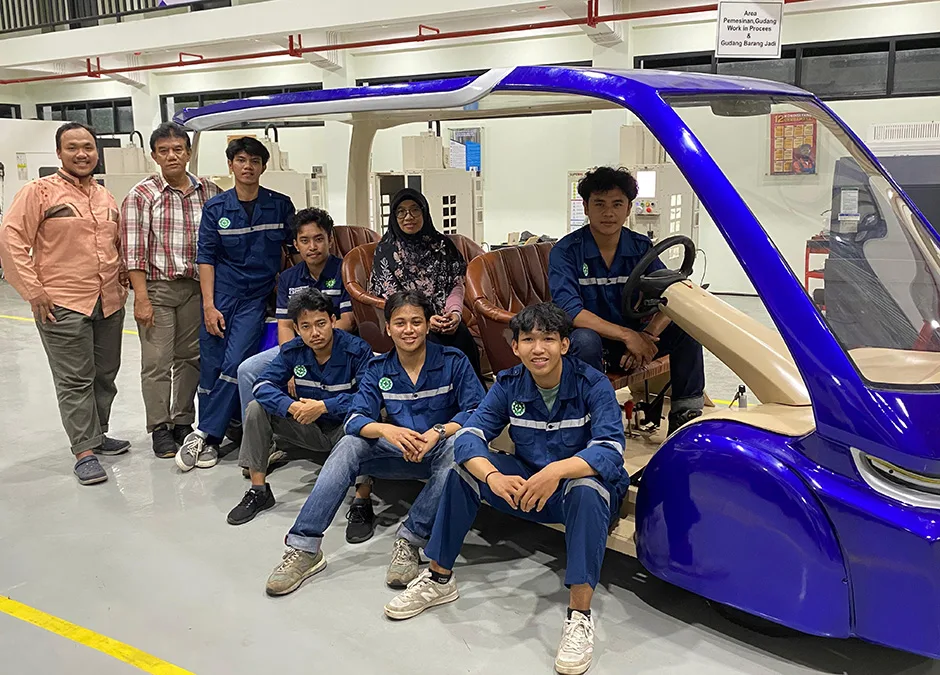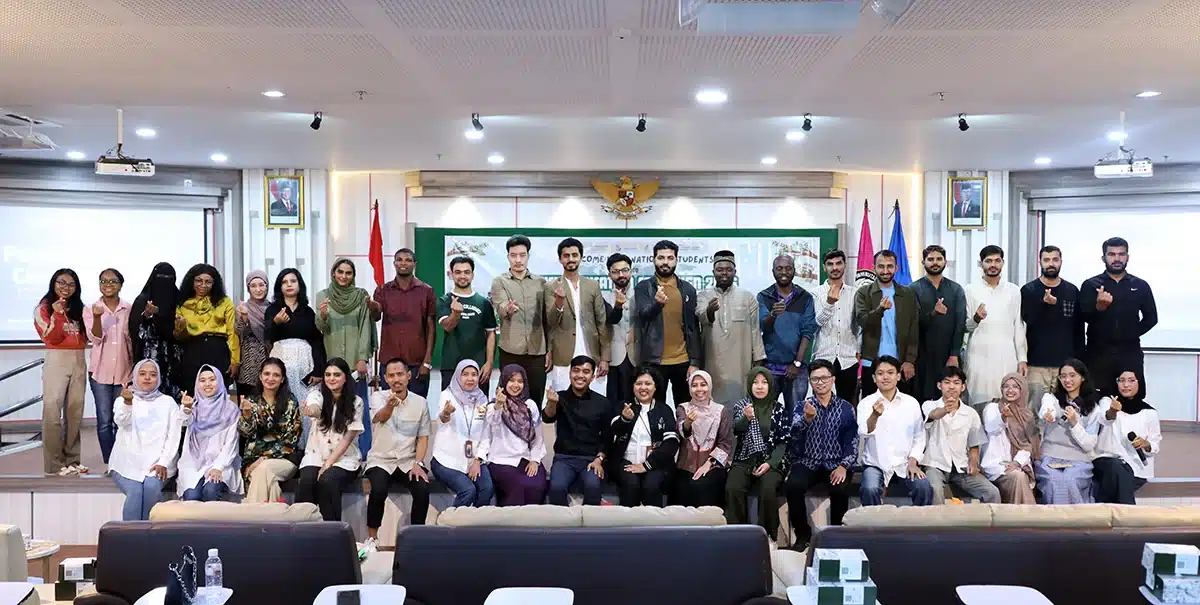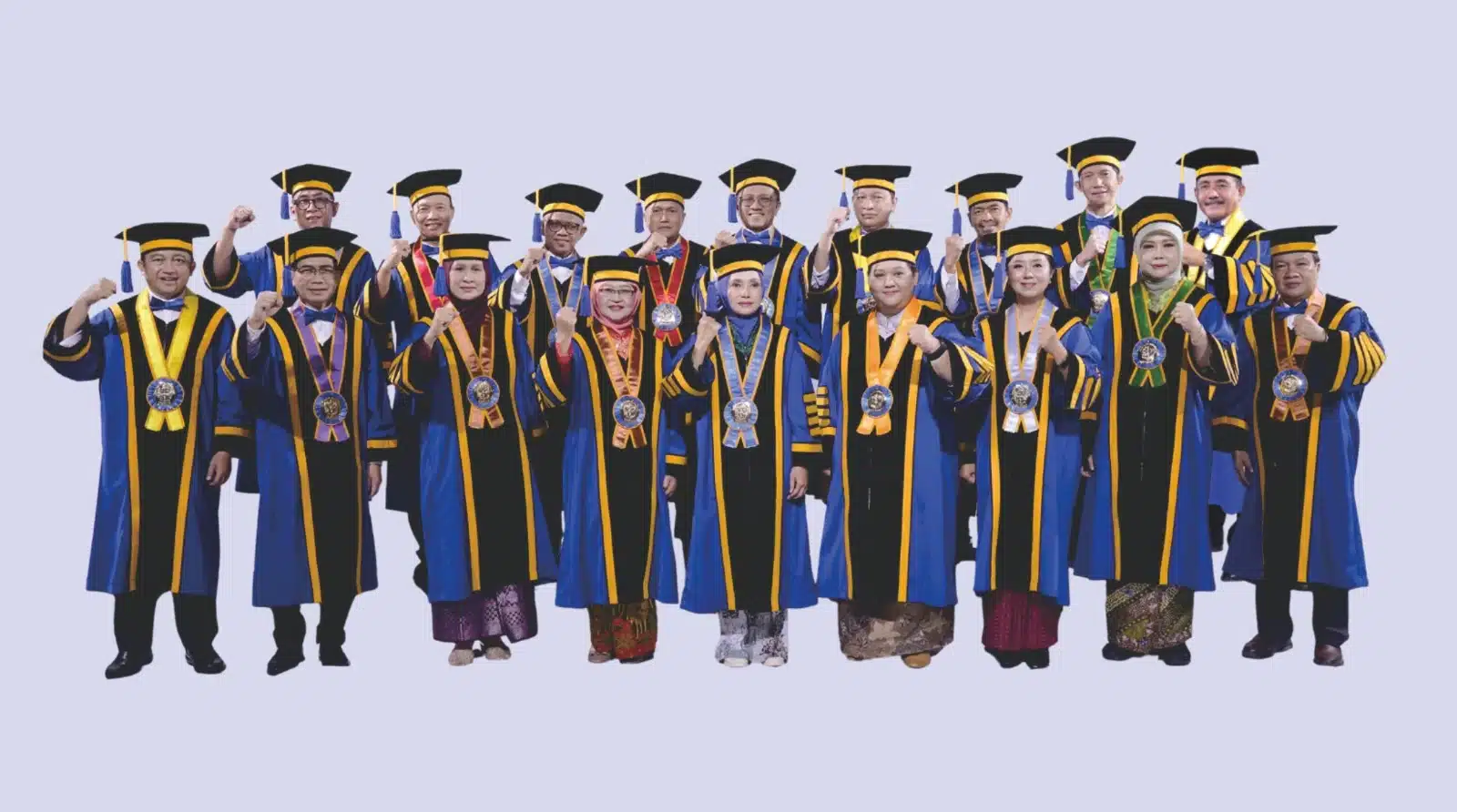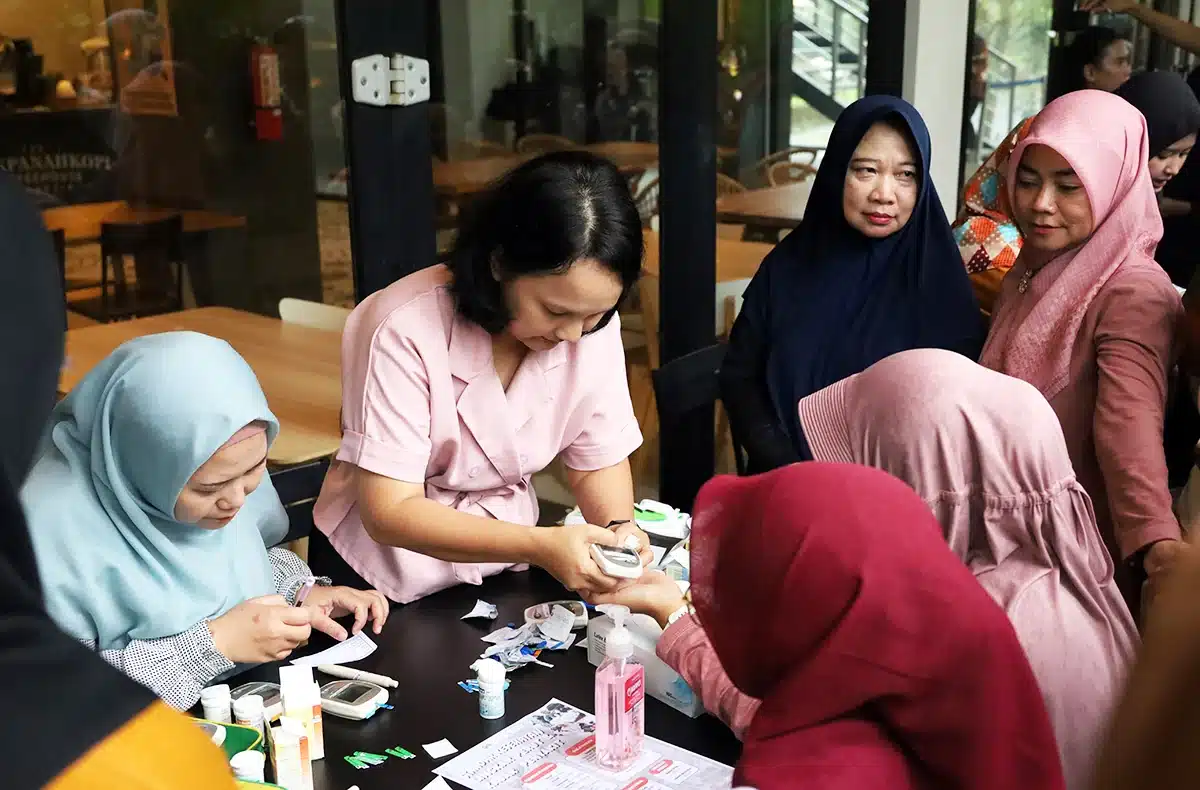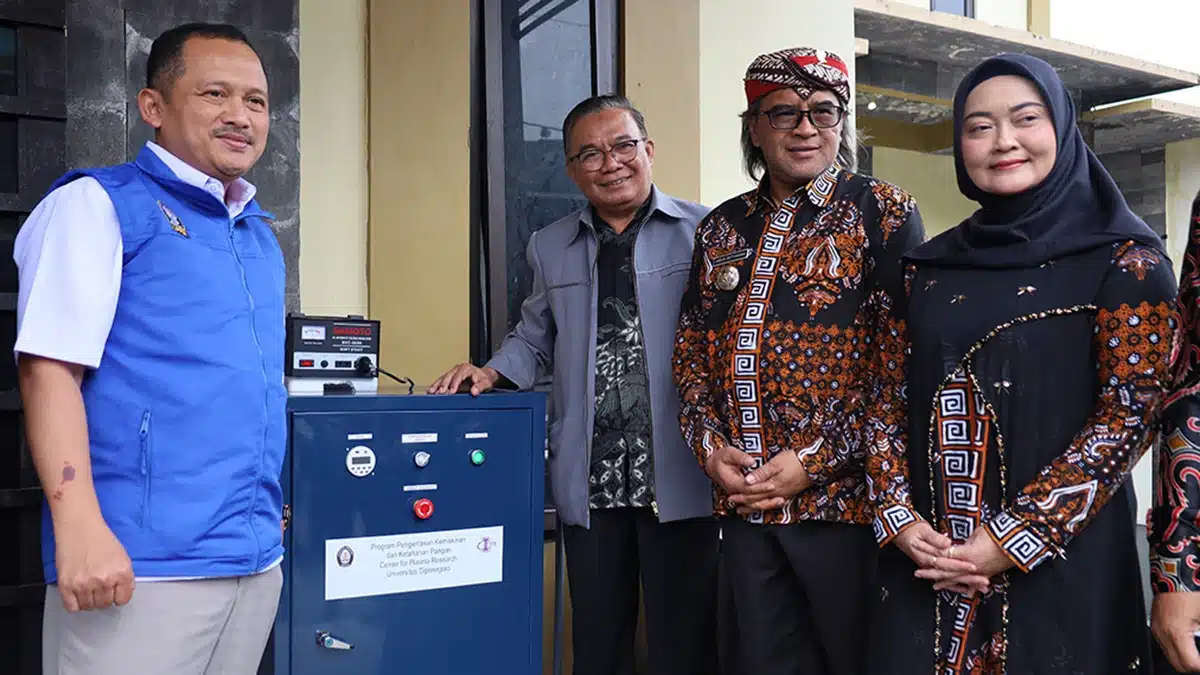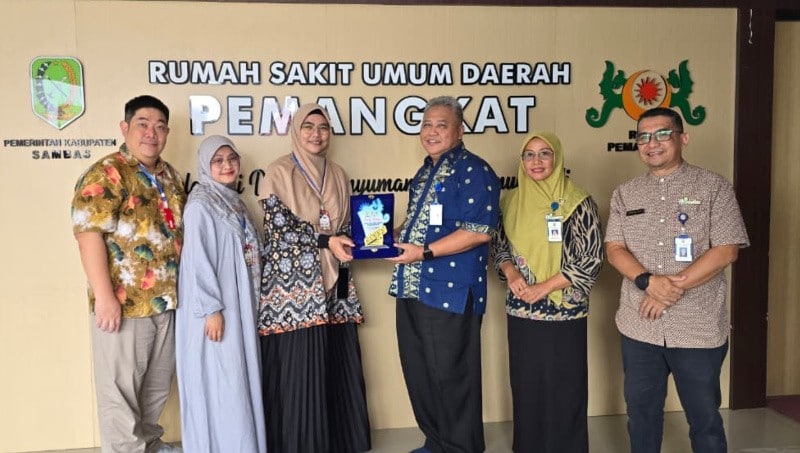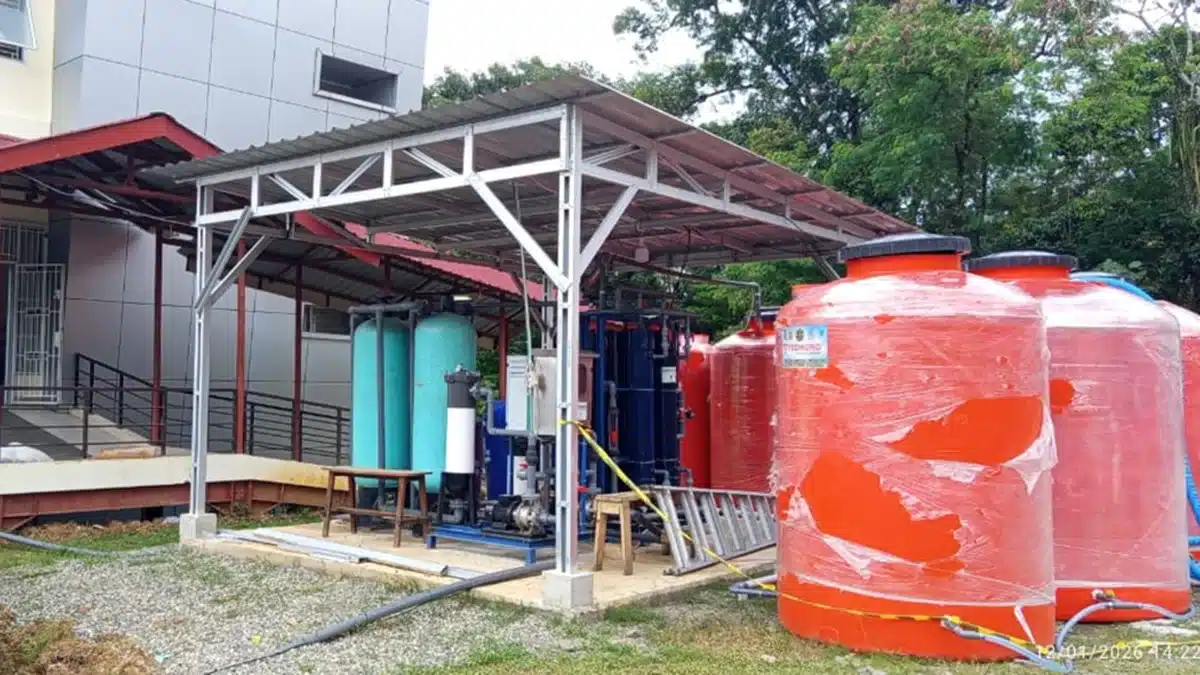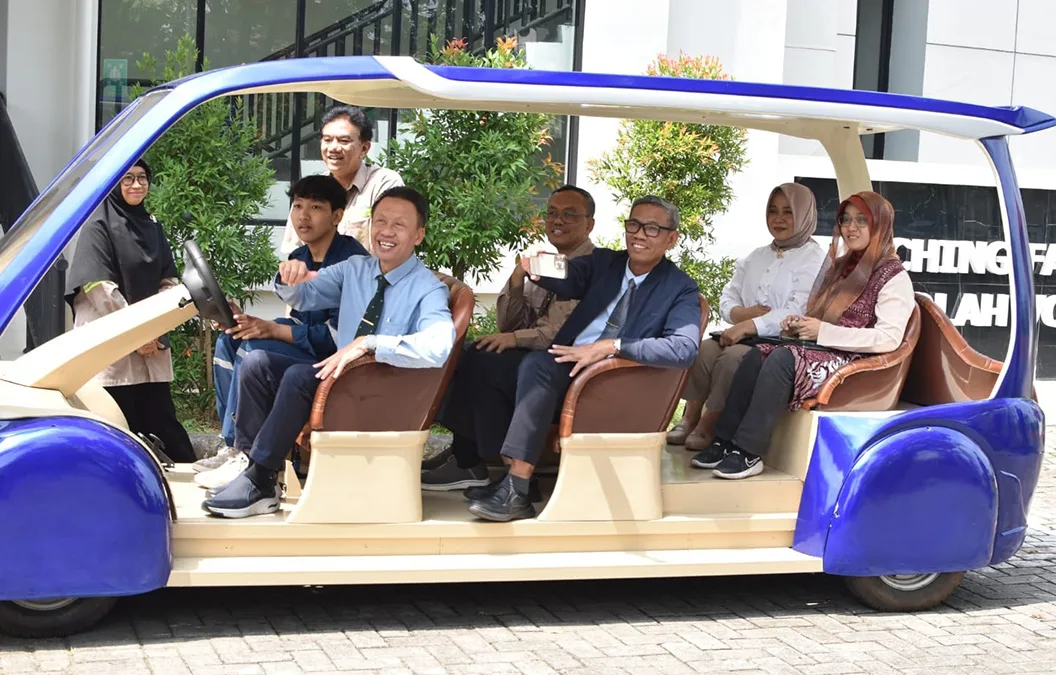UNDIP, Semarang (August 9, 2025) – The Vocational School at Universitas Diponegoro has developed a hybrid buggy car powered by an electric motor combined with solar panels, designed as an eco-friendly transportation solution with a capacity of up to eight passengers. The vehicle is designed for use on campuses, in tourist areas, and in other settings that require efficient, low-emission mobility.
The project was developed at the Teaching Factory Manufacture of UNDIP’s Vocational School, a production-based learning facility that serves as a cornerstone of the university’s vocational education.
Led by lecturers Didik Ariwibowo, S.T., M.T. (Mechanical Design Engineering), and Rofig Cahyo Prayogi, S.T., M.T. (Automation Engineering), the project directly involved students in the design and build process. The collaboration not only facilitated knowledge transfer but also linked learning with industry practices and modern technologies.
“We designed this vehicle not only to be environmentally friendly, but also capable of handling challenging terrain such as the hilly contours of UNDIP’s Tembalang campus,” said Didik Ariwibowo.
The buggy car is currently undergoing testing on campus. Initial results indicate stable motor performance on inclines and a significant contribution from the solar panel to the self-sustained power supply.
A key advantage lies in the use of lithium-iron-phosphate (LiFePO₄) batteries, which offer high safety, long cycle life, high discharge capacity, and extremely low self-discharge. This combination makes the buggy car reliable for repeated use across various terrains without sacrificing energy efficiency.
The first trial, held Tuesday, August 5, 2025, was attended by UNDIP Vice Rector II for Planning, Finance, Assets, Business, and Household Affairs Dr. Warsito Kawedar, S.E., M.Si., Akt., and Head of UNDIP Development and Planning Agency Prof. Dr. Ir. Purwanto, DEA, both of whom praised the innovation.
“This is an outstanding work. We are very proud of the initiative and innovation from the School of Vocational Studies,” said Dr. Warsito.
He added, “This buggy car has great potential. I challenge the School of Vocational Studies to develop it with greater capacity so it can be more economical and widely useful.”
Dean of UNDIP’s Vocational School, Prof. Dr. Ir. Budiyono, M.Si., also voiced his support. “This development proves that UNDIP’s vocational school can produce applied technology oriented toward sustainability and future needs,” he said.
Head of the Mechanical Design Engineering program, Dr. Sri Utami Handayani, S.T., M.T., emphasized the project’s educational value.
“The development of this electric buggy car is a form of project-based learning. Through this approach, we aim to produce graduates who are innovative, adaptive, and able to deliver real solutions to field problems,” she explained.
More than a research output, the buggy car is expected to serve as a prototype for an energy-efficient electric vehicle that can be further developed for campus transportation, conservation areas, eco-tourism, and green housing communities.
With a combination of technological innovation, energy independence, and vocational spirit, the project demonstrates that higher vocational education can deliver tangible, environmentally friendly solutions with broad impact. (Public Communication/ UNDIP-SV/ Endy; Ed. DHW)
